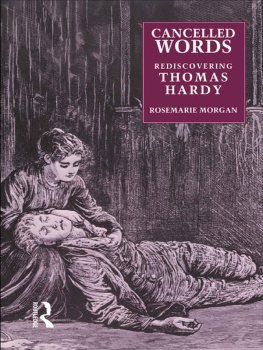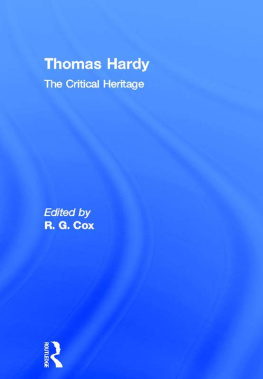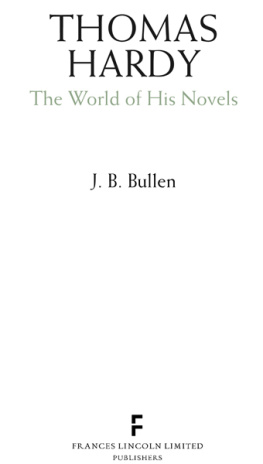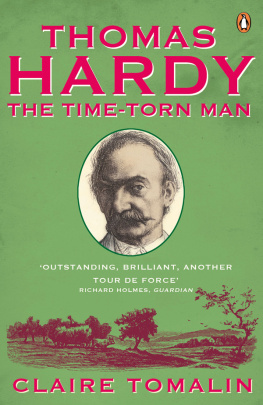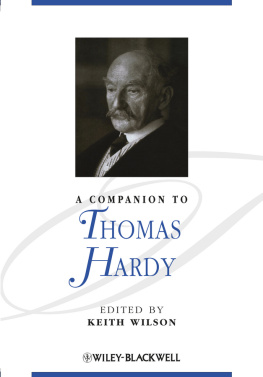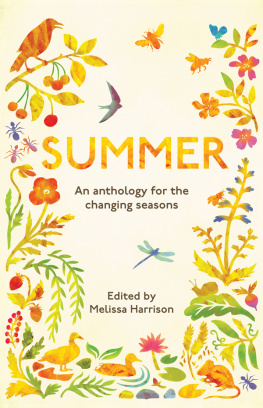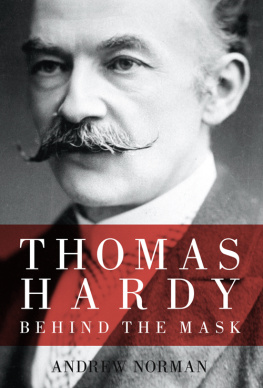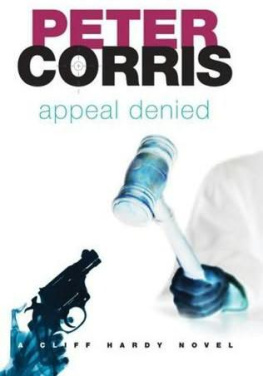Hardy Thomas - Cancelled Words
Here you can read online Hardy Thomas - Cancelled Words full text of the book (entire story) in english for free. Download pdf and epub, get meaning, cover and reviews about this ebook. City: London, year: 2002;2011, publisher: Routledge, genre: Detective and thriller. Description of the work, (preface) as well as reviews are available. Best literature library LitArk.com created for fans of good reading and offers a wide selection of genres:
Romance novel
Science fiction
Adventure
Detective
Science
History
Home and family
Prose
Art
Politics
Computer
Non-fiction
Religion
Business
Children
Humor
Choose a favorite category and find really read worthwhile books. Enjoy immersion in the world of imagination, feel the emotions of the characters or learn something new for yourself, make an fascinating discovery.
- Book:Cancelled Words
- Author:
- Publisher:Routledge
- Genre:
- Year:2002;2011
- City:London
- Rating:4 / 5
- Favourites:Add to favourites
- Your mark:
- 80
- 1
- 2
- 3
- 4
- 5
Cancelled Words: summary, description and annotation
We offer to read an annotation, description, summary or preface (depends on what the author of the book "Cancelled Words" wrote himself). If you haven't found the necessary information about the book — write in the comments, we will try to find it.
Cancelled Words — read online for free the complete book (whole text) full work
Below is the text of the book, divided by pages. System saving the place of the last page read, allows you to conveniently read the book "Cancelled Words" online for free, without having to search again every time where you left off. Put a bookmark, and you can go to the page where you finished reading at any time.
Font size:
Interval:
Bookmark:


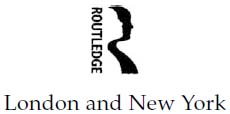
First published in 1992
by Routledge
11 New Fetter Lane, London EC4P 4EE
This edition published in the Taylor & Francis e-Library, 2002.
Simultaneously published in the USA and Canada
by Routledge
a division of Routledge, Chapman and Hall Inc.
29 West 35th Street, New York, NY 10001
1992 Rosemarie Morgan
All rights reserved. No part of this book may be reprinted or reproduced or utilized in any form or by any electronic, mechanical, or other means, now known or hereafter invented, including photocopying and recording, or in any information storage or retrieval system, without permission in writing from the publishers.
British Library Cataloguing in Publication Data
Morgan, Rosemarie
Cancelled words: rediscovering Thomas Hardy.
I. Title
823.8
Library of Congress Cataloging in Publication Data
Morgan, Rosemarie
Cancelled words: rediscovering Thomas Hardy/Rosemarie Morgan.
p. cm.
Includes bibliographical references and index.
1. Hardy, Thomas, 18401928. Far from the madding crowd Criticism, Textual. 2. Hardy, Thomas, 18401928Editors. 3. Stephen, Leslie, Sir, 18321904. I. Title.
823.8dc20 9138326
ISBN 0-415-06825-8 (Print Edition)
ISBN 0-203-20192-2 Master e-book ISBN
ISBN 0-203-20195-7 (Glassbook Format)
To my father:
Tell him a faithful one is doing
All that love can do
Still that his path may be worth pursuing,
And to bring peace thereto.
The Haunter, Thomas Hardy
My appreciation and warmest thanks go to the staff of the Beinecke Rare Book and Manuscript Library at Yale University who not only gave me unlimited access to Hardys holograph manuscript of Far from the Madding Crowd, but also generously supplied me with photocopies, photographic prints and much more besides in the way of friendly assistance, prompt attention, and unfailing goodwill. I also owe a special debt of gratitude to Bob Schweik, as one scholarly overlander to another who has already blazed the trail with Far from the Madding Crowd, and whose advisory comments on my manuscript were generously matched by his welcoming of new or divergent points of view. I should add here that all transcriptions in this study of Hardys holograph manuscript are my own, and that my copy-editor, Sandra Jones, has been of immeasurable help in preserving their accuracy. I owe her very many grateful thanks. And, finally, to my staunch supporters at St Andrews University I wish to express my deepest appreciation. I owe much to Peter Coxons steady stream of letters filled with Hardyana and other literary delightsas always, enthusiastic, sensitive, and affectionate. And if I took the manuscript of this book to Phillip Mallett half expecting to be kept in my place by his scholarly acuity and intellectual agility, I was amply rewardedas also by finding that I seem to have kept him in his place as my erstwhile Ph.D supervisor generously expanding my narrative borders with his erudite marginalia!
The purpose of this book is to present a collation and critical interpretation of the revisions made to Hardys holograph manuscript of Far from the Madding Crowd for its first publication in The Cornhill Magazine (Smith, Elder & Co., 1874). In order to highlight all interlinear and proof revisions of this manuscript I have included, with each and every citation, a corresponding citation from The Cornhill Magazine in so far as it differs from the original. Hardys holograph manuscript provided the copy-text, albeit with variations, for the Cornhill which, in turn, provided the copy-text for all subsequent editions including those we read today.
Hardys post-Cornhill revisions effected very few substantive changes; most were confined to enlarging and defining the topography of Wessex (see Appendices). His most extensive revisions occur either within the manuscript itself or at the proof-revision stage for the Cornhill. This is discounting accidentals. In keeping with the prevailing practice at the time, Hardy left the final punctuation of his text to the Cornhill compositors, who were instructed in the house-style of Smith, Elder & Co. Within the holograph manuscript itself there is no consistency of punctuation; there are long stretches of unmarked dialogue, exclamation marks used where compositors placed question marks and, in general, a decidedly open punctuation. In revising for the Wessex editions of his novels in the 1890s Hardy made widespread removals of the commas supplied by his publishers house-style; this conforms to his original method of writing with minimum use of commas in the holograph version of Far from the Madding Crowd.
What follows here is for the consideration of readers who may like to know something about my own methodology and the two textual versions of Hardys novel I shall be comparing and contrasting. My focus throughout this book is upon the creative mind at work; I have, therefore, taken the manuscript and the Cornhill versions side by side, reading the one alongside the other just as Hardys editor, Leslie Stephen, would have examined the one before admitting it into publication in the other. Where Hardy, sometimes on Stephens advice and sometimes under the pressure of his censorship, submitted changes not only in manuscript but also in proof, we can only map those changes with a view to interpreting their meaning, not their intentionality. Accordingly, each of the chapters that follow in this book offers specific interpretations of, say, the relevance of revisions made to Hardys characterisation of Troy ( examines issues of class and rural labour, as and when these become the focus of his revisionary concerns.
It is not always easy or possible to distinguish between the willing and the unwilling revising hand, and even, on some occasions, between that of editor and authoralthough as certain patterns and characteristics begin to emerge, this becomes less obscure. This does not, overall, impair our critical observation and understanding of the creative mind at work. To this end, and to overcome the time-consuming work and laborious attention that would be involved if I simply presented a list of cancellations and revisions to be collated, compared and interpreted by the reader, my approach is not only editorial, in so far as I am presenting hitherto unpublished portions of Hardys text, but also exegetical, interpretative and analytical.
The manuscript of Far from the Madding Crowd, commissioned in 1873 by Leslie Stephen, editor of The Cornhill Magazine, was tentatively begun by September the same year (some early drafts discarded) and was submitted to Stephen in small sections, anticipating each of the twelve monthly instalments running from January to December 1874. The manuscript was completed in August 1874, and Hardy never set eyes on it again.
Many years later, in 1918 he was surprised to hear from his former publishers, Smith, Elder & Co., that it had been found in their offices would he agree to its sale to raise funds for the Red Cross? He replied, on 23 January to Mrs Reginald Smith:
Font size:
Interval:
Bookmark:
Similar books «Cancelled Words»
Look at similar books to Cancelled Words. We have selected literature similar in name and meaning in the hope of providing readers with more options to find new, interesting, not yet read works.
Discussion, reviews of the book Cancelled Words and just readers' own opinions. Leave your comments, write what you think about the work, its meaning or the main characters. Specify what exactly you liked and what you didn't like, and why you think so.

